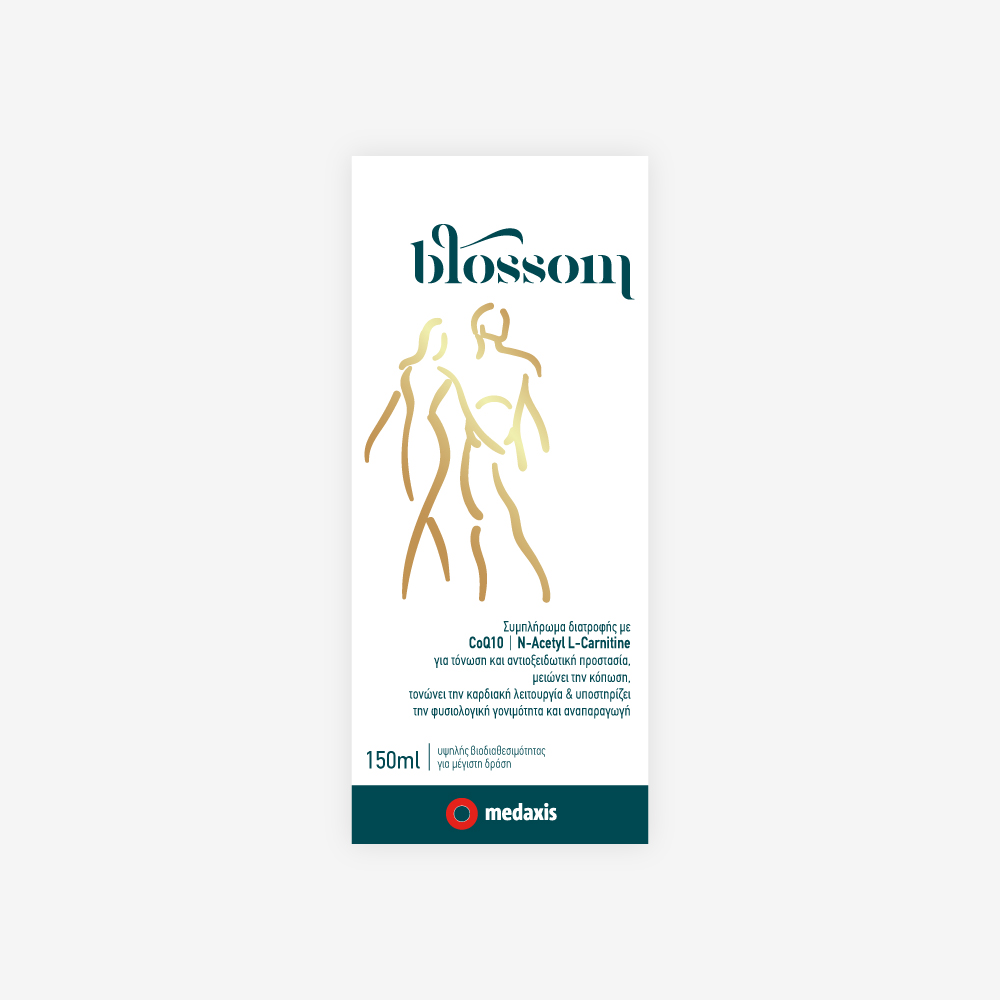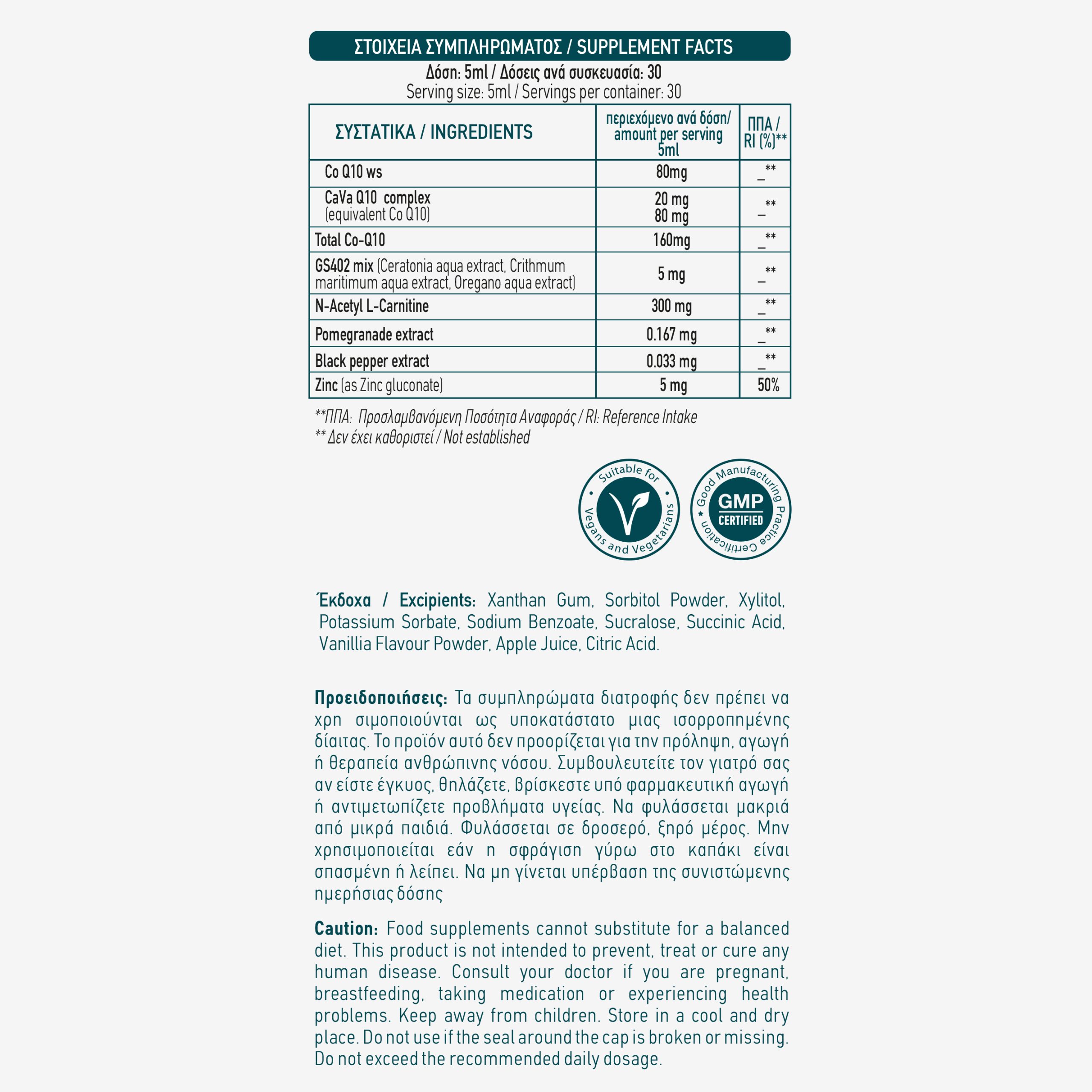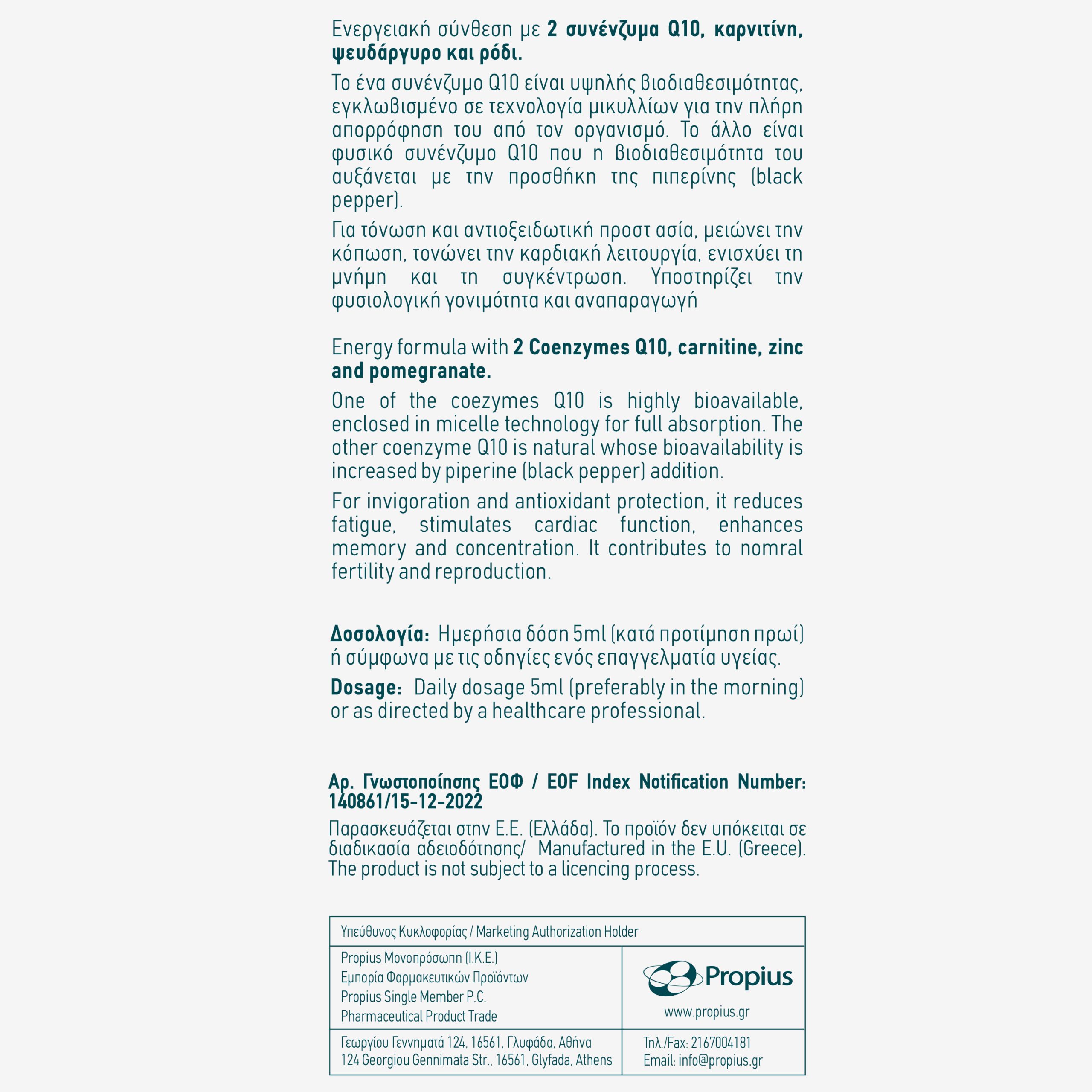Blossom
Coenzyme Q10 (CoQ10) & Fertility
Introduction
Sperm and egg development and maturation are highly complex processes, require a great deal of energy, and are subject to oxidative damage.
Coenzyme Q10 (CoQ10) is a biomolecule that exists naturally in the human body and is present in every cell. It acts as a potent antioxidant and functions critically in cellular energy generation. As the body ages, CoQ10 levels diminish, and our ability to convert CoQ10 into its active form also deteriorates.
Because of this, CoQ10 is used widely as a dietary supplement to support various aspects of health and wellness and has been reviewed extensively for its potential benefits in supporting sperm and egg quality or other aspects of male and female fertility.
Fast Facts About CoQ10 and Fertility
- Sperm and egg cells require a lot of energy to develop and are prone to destructive oxidation.
- Coenzyme Q10 functions as an antioxidant and in the key energy-generating pathway within cells.
- Levels of CoQ10 decrease as you age. Taking CoQ10 supplements can increase blood and tissue CoQ10 levels.
- CoQ10 supplementation has been shown to improve egg quality, sperm quality, and pregnancy rates.
- Sperm and eggs both take about 90 days to develop. For best results, fertility specialists recommend taking CoQ10 and other fertility supplements for 90+ days if
How CoQ10 Works
Coenzyme Q10 helps to improve fertility and the functioning of our cells in two main ways.
(1) CoQ10 is a vital part of the electron transport chain, which is responsible for generating energy in our cells. When CoQ10 levels are higher, the electron transport chain works more quickly and efficiently to produce energy. When more energy is produced, cells function at a higher level, positively impacting processes like sperm and egg development.
(2) CoQ10 functions as a strong antioxidant. CoQ10 works to protect our cells and decrease the damaging effects of free radicals on our reproductive system.
It is theorized that these are the mechanisms whereby CoQ10 may help improve sperm and egg quality.
CoQ10 for Egg Quality and Female Fertility
It is no secret that fertility declines as we age, and for women, that decline is much more rapid and drastic. When we say women’s fertility declines as they age, what we are specifically referring to is the number of eggs they have available (ovarian reserve) and the quality of their eggs.
Coenzyme Q10 levels also decrease as we age. A 2015 study showed that suboptimal levels of CoQ10 can lead to oocyte deficits and age-associated declines in fertility. The good news is that the same study produced results indicating that supplementing CoQ10 can help to reverse the age-related decline in oocyte quantity and quality. In simpler terms, CoQ10 can help support egg quality as you age.
But CoQ10 hasn’t just been shown to help older women. CoQ10 has also been shown to improve egg and embryo quality and improve pregnancy rates in younger women as well.
Co-Q10 for Male Fertility and Sperm Quality
The concentration of CoQ10 in the blood has been shown to correlate with key semen parameters such as sperm concentration, motility, and morphology. Researchers believe this is because CoQ10 supplementation improves total antioxidant capacity.
A 2015 study of 60 men demonstrated improvements in a few measures of male fertility, sperm count and motility. Sperm count improved by 53%, and total sperm motility increased by 26% after supplementation.
Other studies have supported findings similar to these and routinely demonstrate improvements in sperm concentration, motility, progressive motility, and sperm morphology.
In Conclusion
CoQ10 is possibly the most famous fertility nutrient and it’s famous for good reason. Many studies have demonstrated that CoQ10 can help to support both male and female fertility.
N-Acetyl-L-Carnitine (NAC) aids in low sperm count
For low sperm count, the amino acid N-acetyl-L-carnitine (NAC) helps sperm maturation, enhances their motility, and protects spermatozoa against oxidative damage. NAC has important roles for male fertility as it is naturally found in human sperm and seminal fluid. Low carnitine levels are linked with reduced sperm count, or oligospermia, and poor sperm motility. NAC is deficient in infertile semen and sperm samples.
Amino acids are the building blocks that form proteins. This particular amino acid is critical to providing fatty acids to the mitochondria in each cell to fuel energy production. This helps give sperm the boost they need if they are going to have a chance at fertilizing an egg. Human sperm cells have to travel farther than any other single cell and they need a tremendous amount of energy in order to make the journey.
Normal sperm motility is around 55% to 75%, which decreases 5 to 10% on average per hour. NAC helps sperm to swim, and so is a crucial nutrient for men with poor sperm quality. This is especially important because weakly-swimming sperm, or asthenospermia, is one of the most important reasons for male factor infertility.
Sperm counts have been steadily decreasing over the last 50 years from 50 to 60 million/ml, which was considered normal, to today’s “new normal” of 20 million/ml. It is now much more common to see counts under 10 million/ml than ever before. While there has been recent research on the effects of chemical exposure, endocrine disruptors, and environmental pollutants, it has been well established that some medications and recreational drugs can impair sperm production and fertility.
For example, endocrine disruptors such as insecticides, flame retardants, and phthalates from plastics, are specifically toxic to the male hormones responsible for sperm production. Also, excessive oxidant stress from pollutants can damage DNA and impair sperm function.
Infertility affects up to 15% of the sexually active population. Most studies and data focus on infertility in women, yet there has been relatively little attention given to the male contribution to infertility which may be a factor for more than half of infertile couples.3 Infertility is a multifactorial condition that may have many causes.
For enhancing healthy sperm count, NAC can help in several ways:
- The motility of sperm, their ability to swim speedily and in an appropriate direction, is enhanced. An increase in sperm motility is seen in vitro when NAC is added to test the samples. Levels of NAC have been reported to be lower in infertile semen and sperm samples with low motility.
- NAC acts as an antioxidant, protecting spermatozoa against damage from reactive oxygen species.
- More sperm are produced with normal anatomy, or morphology.
- NAC has a potential benefit for pH encouraging an optimal pH in the slightly alkaline range of 7.8.
- Studies indicate that NAC may increase testosterone production and improve testicular function, ultimately boosting healthy sperm count.
While overall sperm count is critical, it is also important that the sperm have matured and have normal structure or morphology in order to function. In an average ejaculate specimen, abnormal morphology may account for 20 to 40% of sperm. These sperm have deformed heads which hampers their ability to break through the egg’s wall for fertilization. Some spermatozoa have multiple heads – defects in the ability to perform the acrosomal (egg penetration) reaction – or multiple or deformed tails. A higher proportion of abnormal, deformed, or even dead sperm will decrease the overall count and affect fertilization.
A placebo-controlled double-blind randomized trial examined the ability of NAC to enhance the kinetic parameters of sperm. The study concluded that NAC enhanced sperm cell motility.
Supplementation with NAC has proven benefits on sperm quality. In one placebo-controlled, double-blind study, sixty infertile men, ages 20 to 40 years, those who received carnitine experienced increased motility and significant improvement of straight progressive velocity after three months.
A 2007 meta-analysis study found that consistent dosing with NAC for 3 to 4 months was found to be most effective at improving sperm motility and maturation, decreasing abnormally formed sperm, and enhancing the rates of pregnancy. Carnitine is important in spermatogenesis, or sperm development, and there have been several studies that showed decreased concentrations in the semen of men with oligospermia.
References
- Wang YX, Yang SW, Qu CB, et al. L-carnitine: safe and effective for asthenozoospermia. Zhonghua Nan Ke Xue. 2010 May;16(5):420-2.
- Pasqualotto, F. F., Lucon, A. M., Sobreiro, B. P., Pasqualotto, E. B., & Arap, S. (2004). Effects of Medical Therapy, Alcohol, Smoking, And Endocrine Disruptors On Male Infertility. Revista do Hospital das Clínicas, 59(6), 375-382.
- Jorgensen N, Joensen UN, Jensen TK, et al. Human semen quality in the new millennium: a prospective cross-sectional population-based study of 4867 men. BMJ Open. 2012;2(4).
- Aliabadi, Elham, et al. “Effects of L-carnitine and L-acetyl-carnitine on testicular sperm motility and chromatin quality.” Iranian journal of reproductive medicine 10.2 (2012): 77.
- Balercia G, Regoli F, Armeni T, Koverech A, Mantero F, Boscaro M. Placebo-controlled double-blind randomized trial on the use of L-carnitine, L-acetylcarnitine, or combined L-carnitine and L-acetylcarnitine in men with idiopathic asthenozoospermia. Fertil Steril. 2005;84(3):662-671.
- Zhou X, Liu F, Zhai S. Effect of L-carnitine and/or L-acetyl-carnitine in nutrition treatment for male infertility: a systematic review. Asia Pac J Clin Nutr. 2007;16 Suppl 1:383-90.
- Soufir, J. C., et al. “Levels of seminal free L-carnitine in fertile and infertile men.” International journal of andrology3 (1984): 188-197.
- Cavallini G et al. Carnitine versus androgen administration in the treatment of sexual dysfunction, depressed mood, and fatigue associated with male aging. Urology 2004 Apr; 63(4): 641-46.





